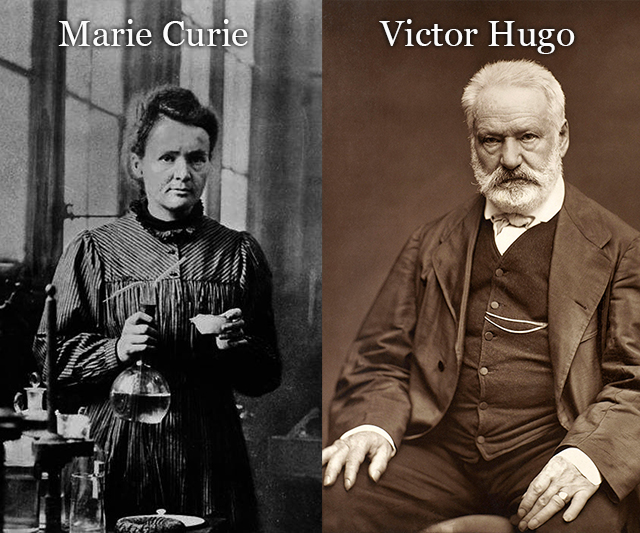Modern Foreign Languages
Through our knowledge-rich languages curriculum, we equip pupils to become lifelong language learners and adaptable world citizens. Knowledge of a Modern Language is essential for academic success and enables pupils to pursue successful international careers and lives. At Budehaven School students acquire knowledge of grammatical concepts and develop language learning skills, successfully preparing them for future language learning opportunities. Students also learn about the language, arts, history and customs of the language studied. This cultural knowledge transforms our students into World Citizens, empowering students to be open-minded and adaptable to new experiences.
KS3 Languages – our approach
The Budehaven Languages department employs a range of strategies to ensure students learn in an enjoyable, positive and inclusive environment. All members of staff have attended training by Dr Gianfranco Conti (a well-respected ML teacher and neuroscientist) on his Extensive Processing Instruction (EPI) method. To enable our students to become successful language learners, we have reviewed our curriculum and created teaching resources to implement the EPI principles into our lessons. Since the introduction of these principles, students have reported a greater sense of confidence and improved knowledge.
Our EPI approach includes:
- Knowledge organisers central to all lessons, enabling students to build accurate sentences
- Extensive drilling of chunks of language through games and speaking activities
- Focus on listening and speaking skills at the start of every unit of work
- Use of texts that are 95% comprehensible to build fluency
- Explicit teaching of language learning and decoding skills
- Regular ‘pop up’ grammar sessions
- Systematic revisiting of knowledge to produce deep and durable learning
Sequencing the curriculum is essential to generate deep and durable learning in Languages.
Where possible, we replicate the order by which children naturally acquire their first language. We therefore start Year 7 by learning key phonics. The learning of these sounds is reinforced in every unit of work, when we introduce new Knowledge Organisers. In Year 7 we learn the key grammatical ideas on which all languages are built. Students start by introducing themselves in the present tense, give opinions and talk about their family. This allows students to learn how adjectives behave, and the importance of the gender of nouns. Students also learn about infinitives and how verbs are conjugated, including common irregular verbs such as ‘to be’ and ‘to have’. This knowledge is essential in order to be able to access the Year 8 and 9 curricula, where students learn to describe events in the past and future as well as complex structures. When appropriate we also ‘seed-plant’ chunks of language. Seed planting exposes students to common chunks of language before students are expected to understand the grammar behind the phrase. For example, students learn the important phrase ‘I would like’ from the first term, even though the conditional tense is not taught explicitly until Year 9.
Cultural Awareness
We believe that grammar and vocabulary cannot be taught in isolation. Students require knowledge of the traditions and culture of the country in order to develop confidence and fluency with the language. Furthermore, the ability to understand and explain cultural knowledge empowers our students to become open-minded and adaptable world citizens. In Year 8 our students learn about typical French and Spanish food and in Year 9 we look at customs and festivals in Spanish and French speaking countries as well as music and sports. At the end of Year 9 we learn about buying train tickets, booking and staying in hotels so that students can use these phrases in real life situations if they go on holiday.

Language selection
In order to develop a successful knowledge rich languages curriculum, students study only one Modern Language throughout Key Stage Three. Since September 2019, all students learn either Spanish or French and have four language lessons a fortnight.
Students and parents are able to give a preference for which language they would like to study during the transition process, although it cannot be guaranteed. Whichever language they study will build on skills they have learnt in their language lessons at primary School.
Homework
Students are set knowledge organiser quizzes at least once a fortnight. Students and parents have access to the Knowledge Organisers on Show My Homework, along with guidance on a range of self-quizzing tasks they can complete at home. Teachers may also set research tasks or reading/grammar activities.
Extra-curricular Activities and Trips
Students are invited to join us at our lunchtime clubs, we currently run German, Italian and British Sign Language sessions.
As a department we are committed to regular practice, so on top of homework tasks, students are encouraged to use online platforms to practice their Knowledge Organisers. For example, each Knowledge Organiser is accompanied by a Quizlet learning set.
We also run a trip to London every year for Year 7 and 8 where not only do we see the sights and visit museums, but we have a traditional Tapas meal, watch Flamenco, visit the the French quarter and do a French/Spanish treasure hunt around Trafalgar Square.
GCSE ML
GCSE Language learning broadens students’ horizons and encourages them to step beyond familiar cultural boundaries. Students develop new ways of seeing the world, enabling them to become compassionate and resilient Global Citizens.
Subject aims and learning outcomes
The French and Spanish courses at Budehaven incorporates the latest GCSE specifications and enables students to:
- deepen their knowledge about how language works and enrich their vocabulary so they can develop independence in a wide range of contexts
- communicate confidently and coherently with native speakers in speech and writing, conveying what they want to say with increasing accuracy
- express and develop thoughts and ideas spontaneously and fluently
- listen to and understand clearly articulated, standard speech at near normal speed
- respond to a rich range of authentic spoken and written material, adapted and abridged, as appropriate, including literary texts
- develop awareness and understanding of the culture and identity of the countries and communities where the language is spoken
- develop language learning skills both for immediate use and to prepare them for further language study and use in school, higher education or in employment
The terminal exam requirements for GCSE are set out in two tiers: foundation and higher and these apply to four exams (equally weighted 25% of the final GCSE grade); Listening, Reading, Writing and Speaking.
Homework
GCSE Languages students will be expected to develop and use their knowledge and understanding of grammar progressively throughout their course; knowledge organiser and verb quizzes are set regularly. Skill based consolidation homework is also set to ensure students are confident in their language learning journey.
Students enjoy a variety of different online platforms such as Seneca, Memrise and Languagenut to either carry out independent learning or complete specific ‘assignments’ for homework.
Bridging the gap outside the Modern Languages classroom
The ML department actively seek opportunities to raise awareness of language learning opportunities beyond school. Past students have returned to Budehaven to talk about their experiences of studying languages at University, such as Shaun who is currently studying Russian and French at Cambridge University. During Flexible Learning Days, students have been able to Skype graduate linguists working at the European Parliament, British Airways and students studying in Madrid. We have also taken groups of KS4 and KS5 students to the University of Exeter where they have studied cultural topics such as film, as well as enjoyed introductory Russian and Mandarin lessons.
Students also have the opportunity to visit a foreign country and we have previously run trips to Barcelona and the Opal Coast in France.





